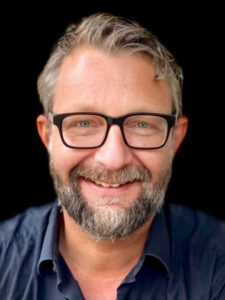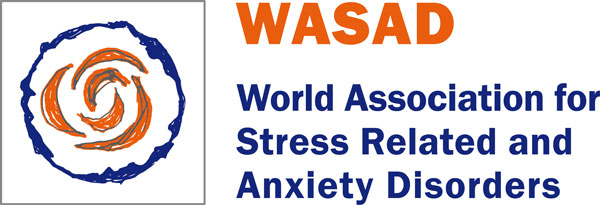Keynote Lectures at the WASAD Congress 2023
Monday September 11
Tomas Furmark: ”Why do people get social anxiety? Clues from neuroimaging”
Tuesday September 12
Iryna Frankova: “Implementation of interventions for promotion of mental wellbeing for Ukrainian population affected by war”
Dominique de Quervain: “Stress and the regulation of memory: from basic mechanisms to clinical implications”
Wednesday September 13
Naomi Fineberg: “Pandemic, Pathological Use of the Internet and OCD”
Eric Hollander: “Inflexible Thinking in Autism Spectrum Disorder over the Lifespan”
Our Keynote Speakers

Tomas Furmark is a full Professor at Department of Psychology (Emotion Psychology), Uppsala University, Sweden. His research interests focus on anxiety disorders and their treatment spanning brain imaging, personality theory and epidemiology. Dr. Furmark is particularly known for this work on social anxiety seeking to comprehend how the brain function and neurochemistry (e.g., serotonin and dopamine transporters) contribute to this disorder and how they are affected by drugs and psychotherapy. His work has contributed very much to our understanding of neurotransmitters and expectancy effects in the treatment of anxiety disorders.

Iryna Frankova is an Assistant Professor in Clinical Psychology, Faculty of Behavioural and Movement Sciences, VU University Amsterdam, Netherlands. She is Chair of the ECNP Traumatic Stress Network. Dr. Francova received her PhD degree in clinical psychology from the Charkiv Medical Academy in the Ukraine of Postgraduate Education and worked at the Bogomolets National Medical University in Kyiv. Her interests focus on the prevention of PTSD, early interventions after exposure to acute stress and mental health issues of forcibly displaced persons.

Dominique de Quervain is a full Professor at the Faculty of Psychology and the Faculty of Medicine, University of Basel, Switzerland. He is interested in the effects of stress and stress hormones on memory in health and disease. Dr. de Quervain pioneered research into the use of glucocorticoids in the treatment of PTSD and phobias. Currently, he works on the identification of the genetic underpinnings of human memory and on the identification of novel drug targets. He is also interested in the use of new technologies such as virtual/augmented reality to treat psychiatric conditions.

Naomi Fineberg is a Professor of Psychiatry and Honorary Visiting Professor of Psychiatry at the University of Hertfordshire and leads the NHS England, Highly Specialised Service for Obsessive Compulsive and Related Disorders. She heads the NICE Psychopharmacology Guideline Subgroup for OCD. Her current research topics include the evaluation of neurocognitive endophenotypes and pharmacological responses in anxiety, OCD and comorbid disorders. Prof. Fineberg is Action Chair of the European Cooperation in Science and Technology (COST) Action Programme on a «European Network for Problematic Usage of the Internet (EU PUI Network)».

Eric Hollander is a Professor of Psychiatry and Behavioral Sciences in New York at the Albert Einstein College of Medicine and Director of the Autism and Obsessive Compulsive Spectrum Program, and the Anxiety and Depression Program, at Montefiore Medical Center and the Albert Einstein College of Medicine. He has served as the principal investigator for a number of federal grants, including the NIH Greater New York Autism Center of Excellence and the DOD CBDV in ASD treatment study. Dr. Hollander was the principal investigator of the Autism Clinical Trials Network, and Chair of the eight centers NIH STAART Autism Steering Committee. He also served as Chair of the DSM-V Research Planning.
Abstracts of the Keynote Lectures
Tomas Furmark: ”Why do people get social anxiety? Clues from neuroimaging”
Anxiety disorders are among the most common mental disorders, and social anxiety disorder (SAD) in particular may affect as many as 12% of the general population over the lifespan. While SAD can be conceptualized as a brain disorder, e.g. involving exaggerated activation of the amygdala in response to socioemotional stimuli, the underlying neurocircuitry, and the relevant brain targets for effective treatments, remain to be elucidated. At the neurochemical level, serotonin and dopamine are two neurotransmitters putatively involved in approach-avoidance motivational conflicts prominent in socially anxious individuals. During this talk, data from a series of neuroimaging studies will be presented, addressing brain activation patterns as well as serotonin and dopamine mechanisms that could be related to the causes and cures of elevated social anxiety.
Dominique de Quervain: “Stress, genes and the regulation of memory: from basic mechanisms to clinical implications”
Stress has a profound impact on learning and memory. I will talk about the underlying biological mechanisms and will discuss the clinical implications. Then, I will present studies on the genetic and epigenetic basis of human memory and how it may affect mental health across the lifespan. Finally, I will argue that the use of human genetics together with biologically informed phenotypes may catalyze the identification of promising memory-modulating drugs. Both drugs that improve working or episodic memory and drugs that reduce aversive memory would be most welcome and may have transdiagnostic treatment potential.
Iryna Francova: “Implementation of interventions for promotion of mental wellbeing for Ukrainian population affected by war”
Since the Russian invasion of Ukraine, millions of people were affected by war and forced displacement related stressors both inside and outside the country. The exposure to ongoing traumatic experiences puts people at high risk of developing mental health problems and imposes major challenges on health care systems of the host communities. Dr. Iryna Frankova will present lessons learned from the adaptation and implementation of scalable stepped care psychological digital and face to face interventions for promotion of the mental health and wellbeing following escalation of the war.
Naomi Fineberg: “Pandemic, Pathological Use of the Internet and OCD”
Repeated waves of the COVID-19 pandemic have witnessed a global worsening of diverse obsessive-compulsive symptoms and behaviours, evident both at a population-based and clinical level and presenting particular challenges for therapeutic intervention. An explosion of internet use during the pandemic may also have led to increased rates of problematic usage of the internet (PUI), a digital form of compulsive behaviour, especially among the young and in lower income groups, though systematic analysis of the existing data is inconclusive. Individuals with obsessive-compulsive personality traits, cognitive inflexibility and those engaging in cyberchondria were particularly vulnerable and have experienced significant psychosocial adjustment difficulties now the height of the pandemic has passed. In this lecture, I will review epidemiological, clinical and population survey data describing these changes including new findings showing that inflexible thinking styles are associated with Covid-19 vaccine hesitancy and consensus clinical guidance on how to manage obsessive compulsive disorders and syndromes in the post-pandemic era.
Eric Hollander: “Inflexible Thinking in Autism Spectrum Disorder over the Lifespan”
Inflexible thinking is a transdiagnostic trait that cuts across various conditions, including obsessive compulsive personality disorder, obsessive compulsive disorder, body dysmorphic disorder, problematic use of the internet, Prader Willi syndrome, and autism spectrum disorder. It is an endophenotype that affects first degree family members of affected individuals, and is characterized by set switching and reversal learning difficulties. In autism, it is present early in life, is long lasting, and characterized by difficulty adjusting to unexpected changes in the environment, rigid black-and-white thinking and obsessive brooding, and protest and temper tantrums associated with internal discomfort. It can impact social, academic and occupational functioning, and can contribute to impaired family and organizational functioning. Early inflexible thinking predisposes to emotional and behavioral difficulties later in life, and in combination with adverse environmental factors such as trauma and bullying, leads to an increased risk for PTSD, outwardly directed aggression, and inwardly directed self-harm. Various pharmacological, psychological and neuromodulation treatments have been utilized to treat inflexible thinking and it’s negative consequences, but it remains difficult to treat.
